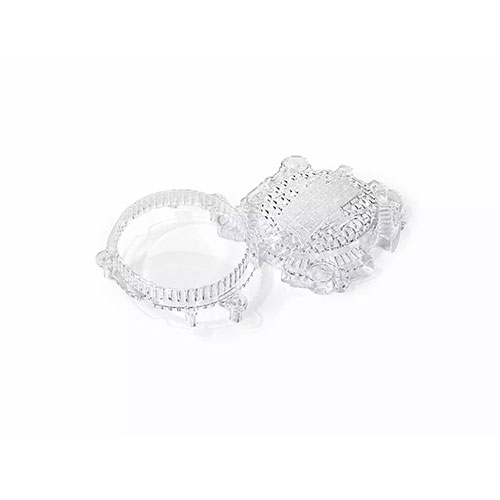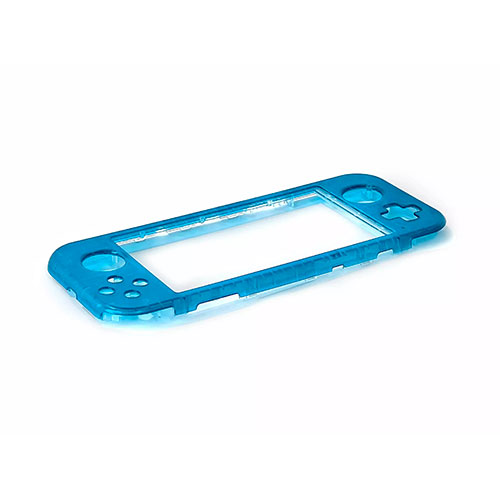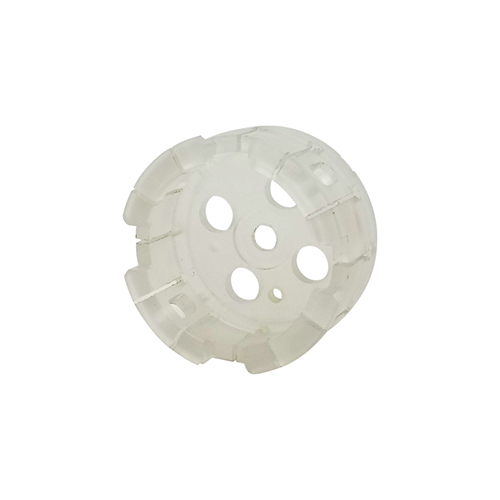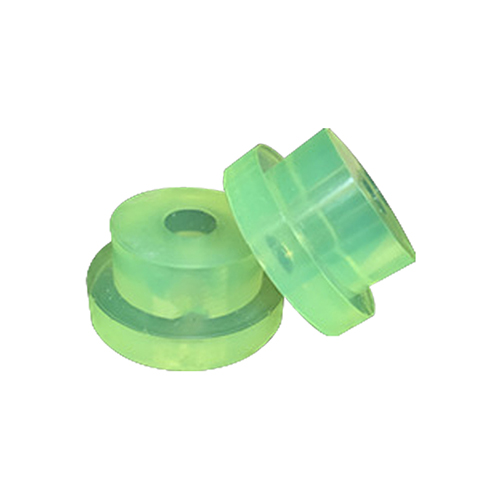Polycarbonate Injection Molding Service
Custom Polycarbonate Injection Molding Service
We deliver exceptional services like the entire spectrum of precision plastic mold design, R&D, and injection molding manufacturing. Trust us to fulfill your custom plastic molding needs with unmatched professionalism and excellence.
- Quote Within 24 hours
- High Quality and Consistency
- Competitive Price 30% cost save
- Lead time as fast as 1 day
- 100% Part Inspection
- 99.5% On-time Delivery

Our Polycarbonate Injection Molding Capabilities
NOBLE provides robust manufacturing capacity in our domestic factories in China, offering high-quality injection molding project solutions with diverse options for surface finishes and flexible materials. We fulfill both low-volume and high-volume production demands.
| Price | $$$ |
| Lead Time | < 5 days |
| Wall Thickness | 1mm-5mm (Typical Wall Thickness);0.8mm-1mm (Thinner Walls); ≥10mm (Thicker Walls) |
| Tolerances | ±0.05mm |
| Max Part Size | 480mm x 751mm x 203mm |
| Available Polycarbonate at NOBLE | General Purpose Polycarbonate, Optical Grade Polycarbonate, UV-resistant polycarbonate, Flame-Retardant Polycarbonate, Glass-Filled Polycarbonate, Impact-Resistant Polycarbonate, High-Temperature Polycarbonate, Reinforced Polycarbonate, Transparent Polycarbonate |

Characteristics of Polycarbonate Injection Molding Materials
Polycarbonate injection molding materials are known for their high impact resistance, optical clarity, thermal stability, and ease of molding, making them versatile for a wide range of applications.
| Features | Info |
| Subtypes | General Purpose Polycarbonate (GPPC), Impact-Resistant Polycarbonate, Flame-Retardant Polycarbonate, Glass-Filled Polycarbonate, Optical Grade Polycarbonate |
| Process | Injection Molding, Extrusion, Blow Molding, Thermoforming, Casting |
| Tolerance | ±0.05mm |
| Applications | Automotive, Electronics, Medical Devices, Optical Lenses, Consumer Goods, Construction |
| Finishing Options | Polishing, Laser Engraving, Painting, Texturing, Coatings, Heat Treating |
Pros and Cons of Polycarbonate for Injection Molding
High Impact Resistance
Polycarbonate is exceptionally durable and resistant to impact, making it ideal for injection molded products requiring strength and toughness, such as protective covers, automotive parts, and safety equipment. It maintains integrity even under stress or impact during injection molding.
Optical Clarity
Polycarbonate offers excellent transparency and light transmission, making it perfect for injection molded applications like lenses, light covers, and displays. It allows for clear, high-quality visuals, which is crucial in industries like optics, electronics, and signage.
Thermal Stability
Polycarbonate performs well in a wide temperature range, maintaining its shape and strength without significant distortion. This makes it suitable for injection molded parts used in applications where temperature fluctuations are common, such as automotive, aerospace, and industrial equipment.
Ease of Injection Molding
Polycarbonate is relatively easy to mold using injection molding technology, offering smooth surfaces and precise part formation. It can be molded into complex shapes without significant difficulty, enabling cost-effective and efficient mass production of intricate parts.
Versatility
Polycarbonate is highly versatile and can be used in various injection molding applications across industries such as automotive, electronics, healthcare, and construction. It can be easily customized to meet specific design requirements, from structural components to aesthetic parts.

Prone to Scratching
Despite its toughness, polycarbonate can scratch easily, which may affect the aesthetics and function of finished parts. To maintain surface quality, extra care is needed during handling, molding, and post-processing steps.
High Cost
Polycarbonate tends to be more expensive than other plastics, which can increase the overall cost of manufacturing. This is especially important in large-scale injection molding runs, where material cost savings are crucial for profitability.
Thermal Expansion
Polycarbonate has a relatively high coefficient of thermal expansion, meaning it can expand and contract with temperature changes. This can affect precision and dimensional stability in injection molded parts exposed to varying environmental conditions.
UV Degradation
Without UV inhibitors, polycarbonate is susceptible to yellowing and degradation when exposed to prolonged sunlight. For outdoor injection molded applications, special UV-resistant grades or coatings are required to maintain their clarity and mechanical properties over time.
Chemical Sensitivity
Polycarbonate can be damaged by exposure to certain chemicals, such as strong acids, alkalis, and solvents. Careful material selection and appropriate surface treatments are necessary in injection molded parts that may come into contact with these substances.

Types of Polycarbonate Injection Molding Materials
Polycarbonate is a widely used thermoplastic that comes in various types, each with distinct properties suitable for different injection molding applications. Choosing the right type of polycarbonate material can significantly enhance product quality and production efficiency.

General Purpose Polycarbonate
General Purpose Polycarbonate (GPPC) is a versatile, durable thermoplastic known for its high impact resistance, optical clarity, and ease of injection molding. It offers a balance of mechanical properties, thermal stability, and electrical insulating capabilities, making it suitable for a wide range of applications in industries like automotive, electronics, and consumer goods.
Tensile Modulus(MPa): 2,400 – 2,500 MPa
Tensile Strain (Yield): 6-8%
Rockwell Hardness(M-Scale and R-Scale): M75 – M85, R110 – R115
Heat Deflection Temperature(℉): 280°F

Optical Grade Polycarbonate
Optical Grade Polycarbonate is specially engineered for applications requiring exceptional optical clarity and transparency. This material is highly regarded in industries such as eyewear, optical lenses, and displays because it combines high light transmission, resistance to yellowing, and impact strength, making it a reliable choice for injection molded precision optical components.
Tensile Modulus(MPa): 2400 MPa
Tensile Strain (Yield): 6%
Rockwell Hardness(M-Scale and R-Scale): M75, R110
Heat Deflection Temperature(℉): 280°F

UV-Resistant Polycarbonate
UV-Resistant Polycarbonate incorporates additives that protect the material from ultraviolet (UV) degradation, ensuring a longer service life when exposed to outdoor conditions. This variant maintains its mechanical properties, clarity, and dimensional stability even in harsh sunlight, making it ideal for outdoor injection molded products such as signage, skylights, and protective covers.
Tensile Modulus(MPa): 2400 MPa
Tensile Strain (Yield): 6%
Rockwell Hardness(M-Scale and R-Scale): M75, R110
Heat Deflection Temperature(℉): 280°F

Flame-Retardant Polycarbonate
Flame-Retardant Polycarbonate is formulated with fire-resistant additives that reduce flammability and self-extinguish when exposed to flame. This enhanced safety feature makes it suitable for injection molded electrical and electronic housings, lighting fixtures, and automotive components, where fire safety and compliance with stringent regulations are essential.
Tensile Modulus(MPa): 2300 MPa
Tensile Strain (Yield): 6-7%
Rockwell Hardness(M-Scale and R-Scale): M75 – M85, R110
Heat Deflection Temperature(℉): 270°F

Glass-Filled Polycarbonate
Glass-Filled Polycarbonate is reinforced with glass fibers, improving its mechanical strength, rigidity, and thermal stability. This composite material is ideal for high-performance injection molding applications that require increased structural support, such as automotive, industrial, and electrical components, offering enhanced load-bearing capacity and resistance to deformation under stress.
Tensile Modulus(MPa): 4500-5000 MPa
Tensile Strain (Yield): 3-5 %
Rockwell Hardness(M-Scale and R-Scale): M90 – M100, R120 – R130
Heat Deflection Temperature(℉): 320°F

Impact-Resistant Polycarbonate
Impact-Resistant Polycarbonate is engineered for superior toughness and resistance to physical impact. Known for its ability to withstand harsh conditions, this material is widely used in injection molded safety equipment, eyewear, protective covers, and automotive parts, where durability and protection against high-impact forces are crucial.
Tensile Modulus(MPa): 2,200 – 2,400 MPa
Tensile Strain (Yield): 7-8 %
Rockwell Hardness(M-Scale and R-Scale): M70 – M85, R110
Heat Deflection Temperature(℉): 270°F

High-Temperature Polycarbonate
High-Temperature Polycarbonate is designed to maintain its structural integrity and performance in extreme heat environments. It offers excellent thermal stability and resistance to heat distortion, making it ideal for injection molded components used in automotive, electronics, and aerospace industries where parts are exposed to high temperatures.
Tensile Modulus(MPa): 2,500 MPa
Tensile Strain (Yield): 6-7 %
Rockwell Hardness(M-Scale and R-Scale): M75,R115
Heat Deflection Temperature(℉): 330°F

Reinforced Polycarbonate
Reinforced Polycarbonate combines the strength of polycarbonate with various reinforcing agents such as glass fibers or mineral fillers during injection molding, enhancing its mechanical properties. This type of polycarbonate offers improved stiffness, dimensional stability, and resistance to wear, making it suitable for demanding industrial applications like gears, bearings, and housings.
Tensile Modulus(MPa): 4,000 – 5,500 MPa
Tensile Strain (Yield): 4-6 %
Rockwell Hardness(M-Scale and R-Scale): M90 – M105, R120 – R130
Heat Deflection Temperature(℉): 320°F
Surface Finishing Options for Polycarbonate Injection Molding
NOBLE offers a range of surface treatments as part of its polycarbonate injection molding services to enhance the quality of each molded product. Each surface treatment is tailored to improve the mechanical properties, durability, and aesthetic appearance of molded polycarbonate parts.

Polishing
Working on metal and hard plastics, our polishing uses highly efficient machinery to get our parts between Ra 0.8~Ra0.1 for a cleaner surface.

Electroplating
Electroplating reduces metal cations in the electrolyte solution, producing a metallic coating on a metal surface. This process can be used for purposes of corrosion and wear resistance, as well as for decorative purposes.

Powder coating
We apply a thin layer of protective polymer with the corona discharge phenomenon to give our part a lasting finish that protects from impacts and prevents wearing down.

Sand Blasting
Band blasting cleans the surface of any impurities and peels coating through the propelling of blast media streams over the parts.

Laser Carving
Helpful in brand recognition or parts organization, we use laser carving that applies various printing methods during full-scale production to quickly embed barcodes, lettering and logos on the parts.
Custom Polycarbonate Injection Molding Parts Display
Explore our extensive experience in custom polycarbonate injection molding, showcasing over ten years of producing precision polycarbonate prototypes and parts for our valued customers.
Applications of Polycarbonate Injection Molding
NOBLE has many years of experience working with Fortune 500 companies, and we specialize in delivering high-precision molded parts. We take pride in producing complex parts for advanced automotive, aerospace, and medical applications.

Automotive Parts
Polycarbonate injection molding is used for headlamp lenses, interior trim panels, and impact-resistant automotive parts. Its durability, transparency, and strength make it an ideal choice for automotive applications requiring high performance, safety, and precision.

Medical Devices
Polycarbonate's clarity, biocompatibility, and strength make it suitable for injection molded medical devices such as surgical instruments, diagnostic equipment, and protective housings. These parts ensure precision, reliability, and compliance with critical healthcare standards.

Optical Lenses and Displays
Polycarbonate is widely used in injection molding for optical lenses, camera lenses, and display covers. Its high optical clarity, impact resistance, and precision molding capabilities make it a core material for high-performance visual products and optical components.

Aerospace Parts
Polycarbonate is injection molded for aerospace applications such as cockpit windows, instrument covers, and protective shields. Its strength, lightweight nature, and thermal stability are crucial for parts exposed to extreme environmental conditions in aerospace environments.

Electronics Enclosures
Injection molded polycarbonate is used for electronic enclosures, housings, and connectors. It offers excellent electrical insulation, durability, and ease of fabrication, making it ideal for protecting sensitive electronic components in demanding applications.

Industrial Parts
Polycarbonate is injection molded for industrial components like gears, bearings, and bushings. It provides strength, wear resistance, and dimensional stability, ensuring reliable, high-performance parts for mechanical systems in industrial settings.
If you are looking for a rapid prototyping manufacturer or a CNC machine shop to fabricate small, medium-volume, or mass-production products, NOBLE is an ideal choice.Our well-trained and experienced staff manufactures parts in line with drawings on modern CNC machines, with the highest accuracy and processing quality in all sizes.In addition, we provide professional design considerations for your CNC machining projects.
Want to get the most professional and fastest service for your CNC machining project? Upload your CAD files now and obtain a quote!








